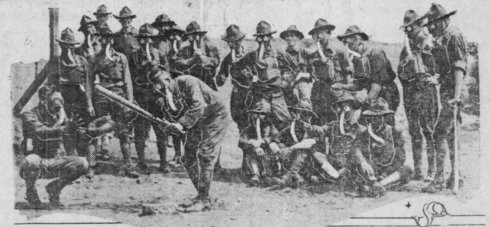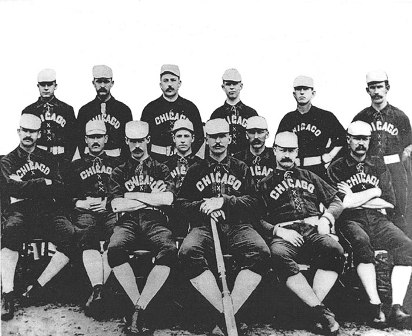The Philadelphia Inquirer said of Dr. Ferdinand Cole Lane:
“(He) is a man who can be counted on to come home from a radio quiz program with a washing machine, a mink coat, a refrigerator, a world cruise and other prizes.”

Lane
After receiving a Doctorate and working as a researcher, studying “the sea, and sea life,” for the Commonwealth of Massachusetts, and a brief stint teaching at the University of Virginia, he became the editor of Baseball Magazine from 1910 to 1937.
In December of 1917, with the United States at war in Europe, Lane wrote:
“We wonder if you realize baseball thrives on war!
“Our Civil War made baseball America’s national sport. The soldier played baseball in their leisure hours and when they disbanded, they carried home with them a lasting love for the game.”
Lane said the “present world conflict in the same way is making baseball the international game.”

Baseball at the Front
He said baseball was the “chief diversion and recreation” of for people stateside, noting the “record-breaking” crowds at the World Series.
“Washington has warned us that the 1918 war strain will be more severe than any other year—regardless of the war’s duration.
“Baseball will do its bit at this critical time, not as a luxury but as a necessity. Baseball will furnish relief from the tense mental strain which awaits growing casualty lists. Baseball will give needed diversion to the soldier in the trenches, to the drafted man in the training camps, to the laborer and the artisan and the businessman in our cities.
“Baseball, in short, will act as a national escape valve for feelings too strong to be suppressed. Baseball is as necessary in time of war an ammunition or khaki uniforms.”
Baseball, he said provided, “peace and health and sanity,” for the public:
“(T)he great American public, wearied and surfeited with war news, turns from sensational headlines to baseball scores and to this great sport which has become one of the needs of the hour.”
Lane, after leaving the magazine in 1937, returned to his roots and dedicated the remainder of life studying and writing several books about nature.


Leave a comment